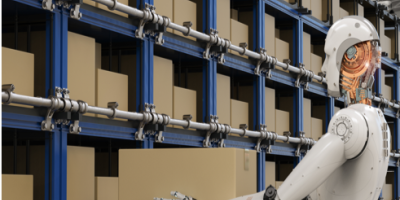Supply chains are generating increasingly large and complex data flows. These rapidly growing data volumes, along with relatively inexpensive computing power and state-of-the-art data science methods, are unveiling new frontiers in supply chain analytics.

Artificial intelligence
Officially launched in 2018, the Artificial Intelligence & Machine Learning in Supply Chains Initiative has been very active with new projects. The ongoing agenda for this research is broadly classified in three research domains: data science in supply chains, warehouse automation, and AI-driven organizations. We have been working in collaboration with a consumer-packaged goods (CPG) manufacturer to address inventory problems.
Data science in supply chains
We have analyzed the effect of missed and late deliveries on downstream inventory availability based on operational data. We used machine learning techniques to predict the probability of out-of-stocks and identify the factors that were driving them.
We also conducted research focusing on predicting phantom inventory at stores, a situation when the store system shows inventory availability, but no sales occur during consecutive days. At store and SKU (stock keeping unit) level, we predict the occurrence of phantom inventory based on sales and inventory data using analytical methods.
This work will continue to explore strategic and operational impacts of emerging digital technologies alongside state-of-the-art data science methods and automation in supply chain practice and innovation.
For more information
Contact Dr. Sergio Caballero at sergioac@mit.edu.